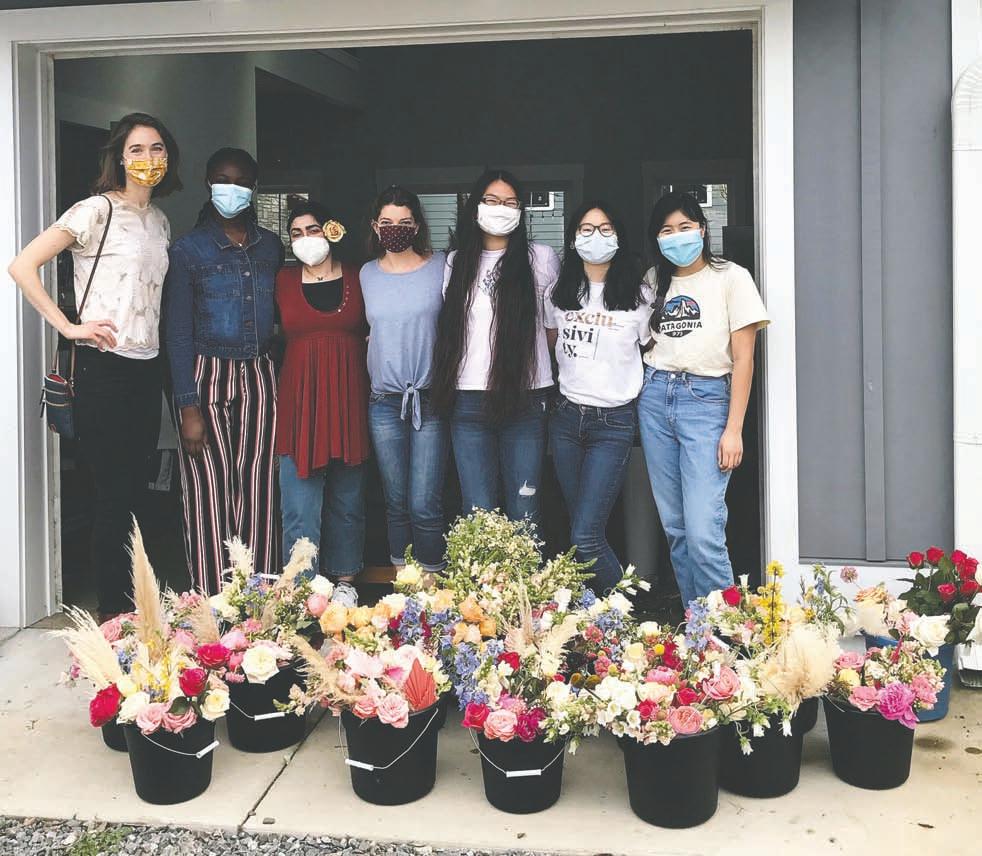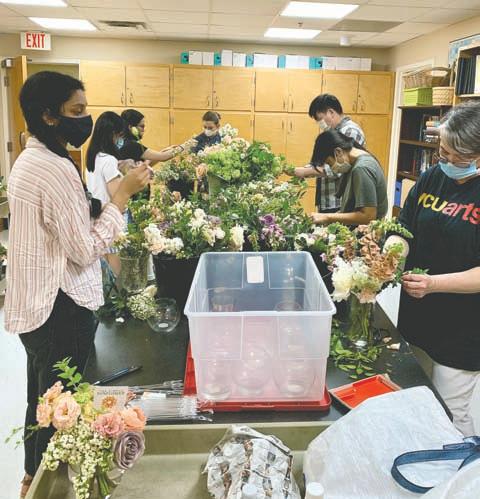
3 minute read
KRON 4 News at
spend time repurposing them into vases for individual patients.
Once the Simple Sunflower got going, volunteers would deliver flowers to 20 to 40 patients on a typical Monday.
Volunteers who were not part of after-wedding pickups would help by donating money or vases.
Things slowed dramatically in the pandemic, but the Simple Sunflower is back in business now that wedding season is roaring again.
People beyond the VCU community have heard about Love’s project and gotten involved.
“Once the word got out, folks started reaching out to us,” Love said.
Love said the project is a fit for her because she has a lifelong appreciation of flowers and gardening, which she got from her mother. As a child, she preferred doing outside chores at her family’s Northern Virginia house and garden, which had beautiful rhododendrons.
Love recalls her father taking her to a garden store and letting her pick a seed packet. She chose sunflower seeds and planted them – and years later, she chose the Simple Sunflower as the name for her group. She is currently working to get the organization nonprofit status.
Love, who worked parttime in a flower shop before medical school, cited several studies that flowers and other plants help hospital patients heal. One study found that viewing plants helps reduce pain levels, anxiety and fatigue in patients recovering from surgery.
“Offering flowers to our patients provides the same benefit,” she said. “Ultimately, that saves the hospital money if the patient doesn’t need that much pain medicine, or even if the patient can leave the hospital a day earlier.”
Before she started her flower-delivery project, Love discussed it with her mentor - Robin Foster, professor and director of the Child Protection Team at Children’s Hospital of Richmond at VCU Medical Center. Foster, who encourages medical students to pursue a passion outside of school, thought it was a great idea.
“I do think that flowers help with the healing process,” said Foster, adding: “Your mind needs to be in the right place to successfully complete that journey.”
Foster called the Simple Sunflower the best project a student has presented to her, and said flowers brighten up an otherwise sterile hospital setting.
“The thoughtfulness of those who have prepared them and delivered them gives patients a sense of hope and intrinsic value in the world,” she said.
Love explained that when she delivers the bouquets, patients get the freshest stems from those recovered – many of which are white roses, white hydrangeas, and other white flowers. The busiest time of the year for weddings in Richmond is usually May and June, and October and November.
After volunteers collect and repurpose the flowers, they deliver them first to patients in palliative care who are nearing the end of life.
“Being able to help deliver the flowers to those patients is very meaningful because you just see those patients’ faces light up,” Love said. “You connect with them on a different level.”
Love, whose general residency will last one year, will move to Portland, Ore., afterward to do a specialized residency in diagnostic radiology.
She said she wants to bring the project to more cities and maybe open chapters at other medical schools.
“It’s so gratifying to see the patients who receive our bouquets,” she said. “It reminds me why we do what we do.”
Vivian Huynh
ABOVE: Volunteers from Eleanor Love’s organization the Simple Sunflower gather flowers from a recent wedding to repurpose for hospital patients in Richmond. RIGHT: Volunteers from the Simple Sunflower create bouquets for hospital patients using flowers repurposed from a local wedding in Richmond.

Olivia Lee








